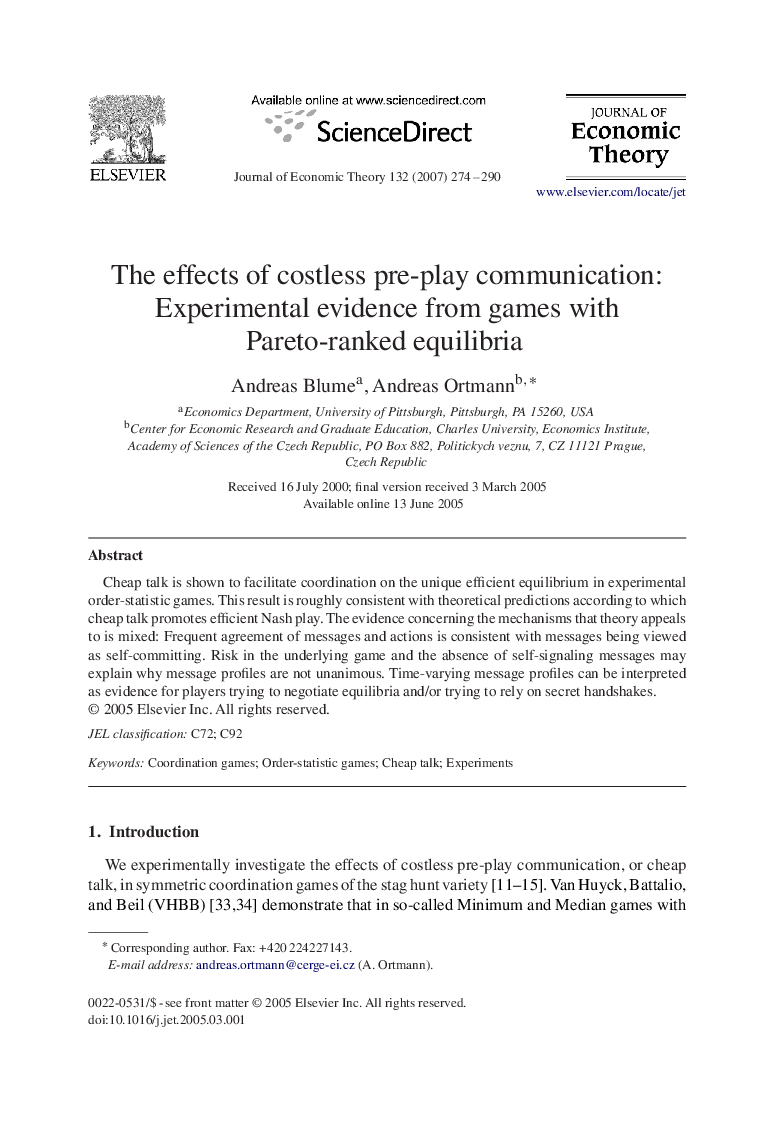| Article ID | Journal | Published Year | Pages | File Type |
|---|---|---|---|---|
| 957523 | Journal of Economic Theory | 2007 | 17 Pages |
Abstract
Cheap talk is shown to facilitate coordination on the unique efficient equilibrium in experimental order-statistic games. This result is roughly consistent with theoretical predictions according to which cheap talk promotes efficient Nash play. The evidence concerning the mechanisms that theory appeals to is mixed: Frequent agreement of messages and actions is consistent with messages being viewed as self-committing. Risk in the underlying game and the absence of self-signaling messages may explain why message profiles are not unanimous. Time-varying message profiles can be interpreted as evidence for players trying to negotiate equilibria and/or trying to rely on secret handshakes.
Keywords
Related Topics
Social Sciences and Humanities
Economics, Econometrics and Finance
Economics and Econometrics
Authors
Andreas Blume, Andreas Ortmann,
